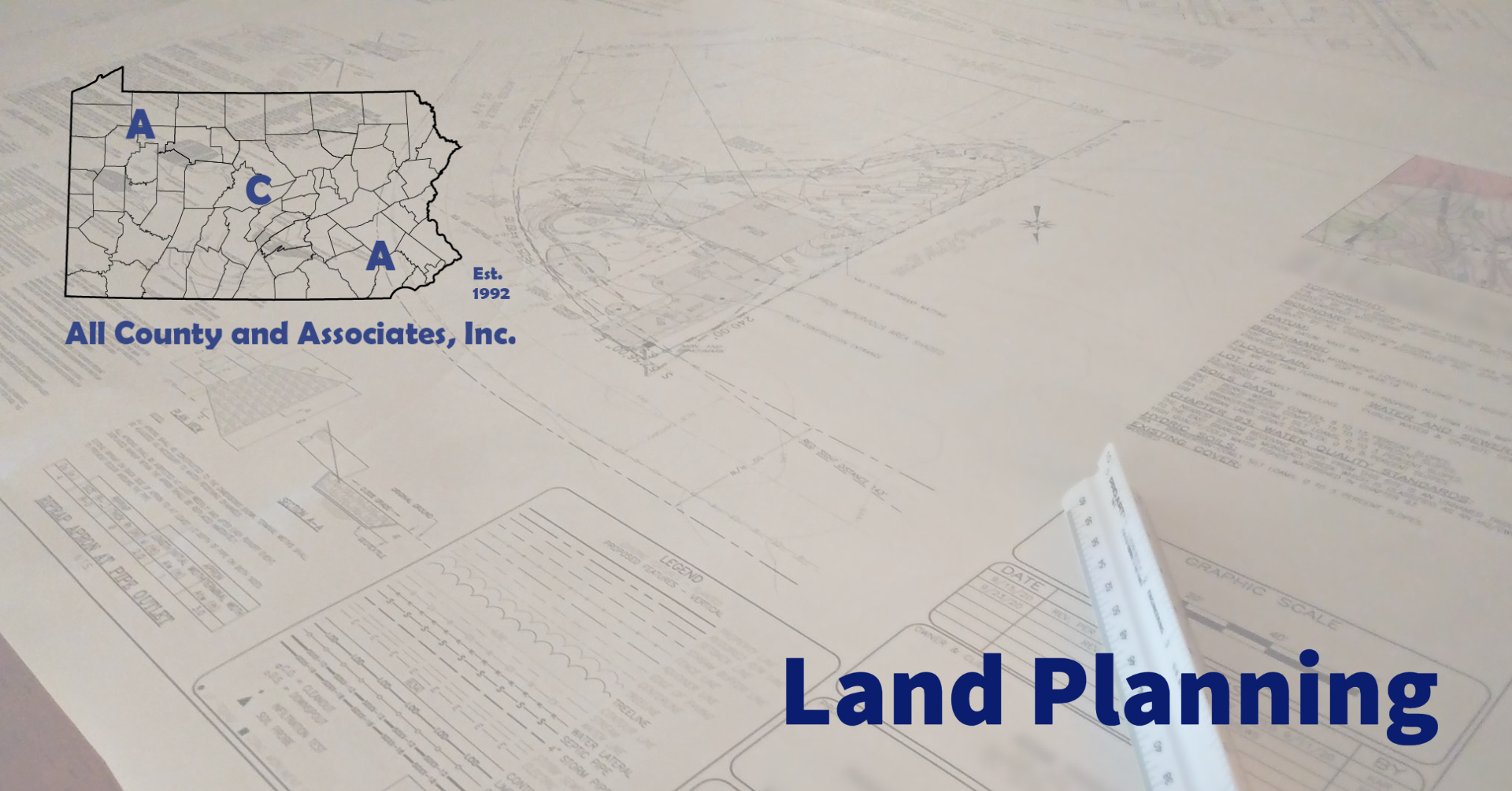
Have you ever wondered what determines where and how development occurs? In this seven-part series, we will look at land planning in Pennsylvania. This starts with the Municipal Planning Code, which sets the requirements for all municipalities.
Established by Act 247 in 1968, the MPC became effective on January 1, 1969. The purpose is to promote safety, coordinate development, and protect resources. In fact, it must do this while not preventing or impeding an owner’s need for change and use. The Act regulates local government planning, excluding Philadelphia and Pittsburgh. This includes agencies, comprehensive planning, subdivision and land development, and zoning. Additionally, the MPC ensures coordinated planning between the county, school district, state, and utilities. Therefore, most municipalities require approval letters from other organizations. This includes Commonwealth approval for ingress and egress along state highways and environmental permitting. Whereas, utilities review plans for safe connection, adherence to design standards, and capacity availability. Land Use Introduction Per the code, community planning cannot be arbitrary. Therefore, it considers economics, use, housing, transportation and recreation. To begin with, the process brings together officials, organizations and citizens. Hence, the process includes at least one public meeting. Finally, the government body must hold at least one public hearing. The final product includes reports, charts and maps. Community goals, growth objectives and recommended policies come from the plan. This is important because no action can be inconsistent with or fail to follow the plan. To see your county’s comprehensive plan, we have included the following links: Subdivision and Land Development Ordinance (SALDO) Often referred to as the SALDO, this the most common land use ordinance in Pennsylvania. Actually, 90% of municipalities have or rely on a county-based SALDO. To begin with, the SALDO codifies the creation of property and improvement of land. And so, the SALDO sets design standards for roadways, water, sewer and drainage systems. Finally, it ensures wise, safe and planned growth. Zoning Ordinance The second most common land use ordinance is a Zoning Ordinance. Nevertheless, 67% of municipalities use some form of a Zoning Ordinance. In short, the ordinance regulates the use of land. To begin with, the municipality divides the properties into zones or districts. Then, it applies provisions for lot dimensions, setback and density. Finally, the ordinance cannot contribute to unaffordable housing. Impact Fees Impact Fees are a technique utilized in planning. The first is a transportation impact fee to offset the cost of future capital improvements. The fee covers a designated service area but do not cover all the cost of improvements. Additionally, they cannot cover ongoing maintenance. The second fee is a recreational impact fee instead of constructing facilities. They can be offset by a fee in-lieu of, or preservation of open space. Fees in-lieu of open space can only go towards recreation. Started in 1992 and located in Chester County, PA ACA has grown to become a full-service civil engineering firm. Today, we merge professional services with practical knowledge for residential and commercial projects. No matter the scale, from installing a fence, to building a structure or developing land, you need permits. Because the approval process includes many permits and agencies, it can be a headache. Working with ACA’s full-service team saves you time, money, and headaches. Every step of the way, we are here to support you and educate you about the process. Here are some of the basic services we provide: Construction Management | Civil Engineering | Environmental Permitting | Septic System Testing and Design | Land Surveying | Wetland Delineations and Mitigation Please feel free to browse our website or if working on a project or need help, contact us at (610) 469-3830. Also, join the conversation on: Facebook | LinkedIn Municipal Planning Code (MPC) Introduction
Above all else, these regulations ensure economic growth, public health and well-being. Not to mention, they allow property ownership and development, as a right, while protecting public interests. Important Acts include:
Series Index:
Comprehensive Plan
Land Use Ordinances
Who is ACA?
Share this post:
